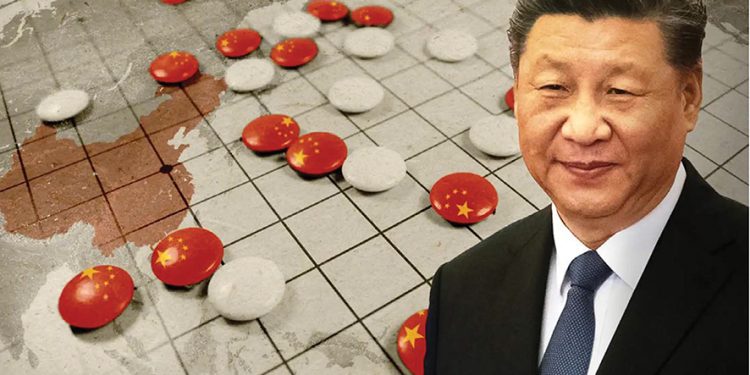Ideas are important in an era of intense competition between great powers, as they support the claims of great powers to global economic and political dominance. These two areas have been dominated by the US for a long time. China is now trying to position itself more and more as a world player who takes responsibility. It is clear that its success is not guaranteed as it depends on many geopolitical factors. Beijing is clearly advancing its multilateral institutions, and various security initiatives that would allow it cement its global clout.
China is slowly revealing its ideas about the world order that it envisions. Although we don’t know much about China, some of its vision has been revealed recently, even if it is incomplete. The Global Security Initiative, announced by Chinese President Xi Jinping during his keynote address at the Boao Forum for Asia Annual Conference in April 2020, provided a glimpse of Chinese thinking. But most importantly, it signaled China’s global ambitions, which go beyond economics. It aims to do something bigger. It aims to create a framework in which China can maneuver and, most importantly, displace the Western Security Architecture. The GSI is based on the idea of indivisible safety, the respect for the territorial integrity of all countries, and the UN Charter. Some points are vague, but others are not.
Xi presented the Global Security Initiative (GSI), during his speech on the Global Development Initiative at the Seventy-Sixth United Nations General Assembly. The two ideas raise many questions but show that China is now aware of the need to present alternatives concepts for state-to-state relationships. Beijing believes that to replace the US global order, it is not enough to point out the failures of liberal systems, but also necessary to present viable alternatives.
The GSI & GDI are aimed at creating a new world order that is more in line with Chinese interests. It is true that little is known about these two initiatives. However, it is likely China will reveal more concrete details over the next few years. Beijing will closely monitor how the concepts are received around the world and act accordingly. We may see fundamental changes in the GSI/GDI, as we have seen with other Chinese initiatives. The competition with the US will increase. This was the case with the Chinese flagship initiative – the Belt and Road Initiative (BRI). The BRI is not a static concept. It has proven its adaptability in addressing new challenges and opportunities. The GSI and GDI are not to be ignored either.
These initiatives are a clear sign that Beijing has begun to look beyond the global economy, and is now actively involved in shaping global affairs. The GSI/GDI could be a logical extension of the BRI. The BRI was a reshaping of the Eurasian Infrastructure, but it did not address the security challenges posed to the region by terrorism, extremeism, and most importantly, competition and open rivalry with other powers. Add to this a number events that have shaken global security, and perhaps accelerated the unveiling. From Covid-19 to the chaotic US withdrawal in Afghanistan, the US’ recalibration in the Middle East, and Russia’s conflict in Ukraine, Beijing must adapt to the competition between two emerging blocs.
The GSI/GDI can be seen as a way to address these challenges. The geopolitical context plays a key role in this. The war in Ukraine intensified the competition between great powers in Eurasia. The war in Ukraine was important for China because it helped the West gain momentum, increase its effectiveness, and show resolve through its support of Ukraine. Beijing is concerned about a stronger West and a NATO that is always interested in expanding its view to the Indo-Pacific. This has forced Beijing to develop a Chinese concept. The success of GSI or GDI, however, is not predetermined. These ideas are likely to be more welcomed in countries that have a history of strained bilateral relations with the US and seek closer ties with China.
The “indivisible” security concept is a novelty in GSI. GSI is a holistic security approach that was originally developed in Europe during the Cold War. No country’s security can be achieved at the cost of its neighbor. Beijing and Washington will become more competitive as the number of Chinese global initiatives increases. This competition will cover almost all areas of bilateral relations, forcing many countries to make radical decisions in foreign policy.
Emil Avdaliani: Analysis
Emil Avdaliani, a professor at the European University of Tbilisi in Georgia, is an expert on silk roads.
Read More @ georgiatoday.ge












